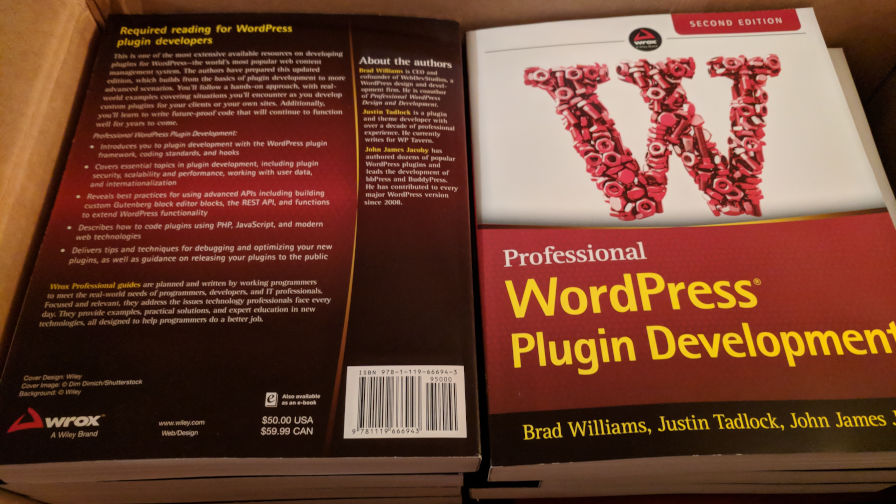Professional WordPress Plugin Development, 2nd Edition

It has been a long road. A year to be more exact. That’s when one of my original partners in crime, Brad Williams, shot over a message about putting out a second edition of our plugin development book.
There were moments in the early days when I didn’t think we’d ever get the ball rolling. The project was delayed and upended many of my autumn plans as we tried to figure out how to make this latest book project work. It was a massive undertaking. Because it had been a decade since we dropped the first edition, it meant a lot more legwork than what would have normally went into such a book update.
There was a point in the early part of the process where I was ready to throw in the towel — before we even put the first word down. I won’t get into the reasons why. They are not important. However, I am glad I stuck out the process.
We put together a good team. John James Jacoby joined our ranks as the third co-author. Greg Rickaby became our new technical editor. Joost de Valk came back on for a second round to write the foreword.
Things were taking shape. But, we had miles to go.
Throughout the process, we probably went several more miles than we needed. It was not the smoothest of roads, but writing a technical book on an ever-changing piece of software never is.
Throw in the idea of beginning down a new career path, especially one that involved daily writing, I had my share of hurdles to jump. Essentially, I didn’t have a free weekend for around four months. In the end, the journey was worth taking.
You might be reading this and thinking, “Just tell me about the book already.”
Okay. Okay. Let’s do this.
Professional WordPress Plugin Development is a book about developing plugins.
The goal of the book is to teach some of the more advanced topics while covering pretty much every aspect of building plugins for WordPress. We walk you through the basics but quickly jump into various APIs. Depending on your current skill level, you could bounce around to just the chapters you need. Or, you can read it from front to back.
Because this is a book on professional development, we assume some basic, working knowledge of WordPress, PHP, JavaScript, HTML, and CSS. There are plenty of other books on those specific topics. It would have been impossible for us to cover them all in detail. Instead, the book tries to get you building your first plugin from the outset.
For the second edition, we cut out several chapters from the first book, relegating old concepts to “The Kitchen Sink” chapter. We introduced new chapters on topics such as building plugins with the REST API and introducing everyone to the block editor (Gutenberg). Even if you read the first edition about a decade ago, there is some new stuff worth exploring.
Therefore, dear reader, I hope you come along with us on this journey. I think the end result is a book worth reading, but I am also a bit biased.